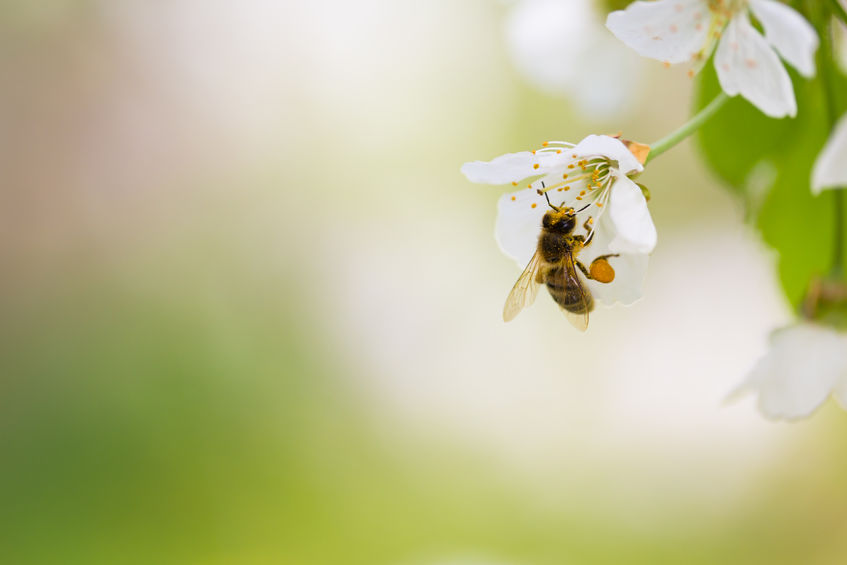
Green lobby groups are ramping up their support for a call on the ban on 'bee-harming' pesticides amid strong opposition from farming unions.
Environmental group Friends of the Earth has released a YouGov survey showing that over three quarters of the UK public (76%) think the government should support EU proposals to extend current restrictions on pesticides to all crops.
The survey has been released amid the Conservative Party Conference in Manchester today (2 October), where Defra Secretary Michael Gove is expected to give a speech.
Mr Gove is coming under pressure to reveal whether or not the UK government will back the European Commission proposal for a ban on the use of three neonicotinoid pesticides on all outdoor crops.
Speaking about neonicotinoids following a speech in the summer where he outlined his vision for a Green Brexit, Mr Gove said new research had raised “profound concerns” and that he was contemplating the need for further restrictions on their use.
Restricted
In 2013, three neonicotinoid pesticides were restricted from being used on flowering crops attractive to bees across the EU after it was revealed that they posed a threat to them.
However, neonicotinoid treated seeds are still used in other crops - such as wheat.
The European Commission is due to discuss the issue later this week (Thursday 5 - Friday 6 October), where Member States are expected to indicate whether or not they support the proposal.
“The UK public are firmly in favour of extending the current ban on bee-harming pesticides to all crops,” Friends of the Earth chief executive Craig Bennett.
“With overwhelming scientific evidence of the threat neonicotinoid chemicals pose to Britain’s bees, Michael Gove must commit the UK to supporting a total ban.
“Farmers up and down the country are already successfully producing crops without neonicotinoids – the government and NFU must do more to help farmers switch to less damaging alternatives.”
Re-authorisation
Farming bodies across the EU have stepped up action to call for glyphosate to be re-authorised for fifteen years after the EFSA gave a positive assessment.
Ahead of talks next week, European farming bodies including COCERAL, Copa and Cogeca and the NFU have called on EU Member States to re-authorise the use of glyphosate.
It comes as news that the European Food Safety Authority (EFSA) European Chemicals Agency (ECHA) gave glyphosate a positive assessment.
The EFSA's assessment, published on 7 September, found there is no evidence that glyphosate is having a harmful effect on human hormone systems.
Copa and Cogeca, an EU farming cooperative, said it has "strong scientific evidence" from both EFSA and ECHA to support the re-authorization of the widely-used active substance for 15 years.
'Clean bill of health'
NFU Scotland President, Andrew McCornick commented glyphosate has received a "clean bill of health" from the European Food Safety Authority, European Chemicals Agency, World Health Organisation, and the Food and Agriculture Organisation of the United Nations.
“This scientific consensus means that if regulation of plant protection products in the EU is to have any credibility at all, glyphosate must now be re-authorised for a further 15 years – including for pre-harvest use,” Mr McCornick explained.
“Whilst the Union has written to all Scottish MEPs to encourage them to support the re-authorisation of glyphosate, it would be invaluable if these MEPs also heard directly from farmers who use glyphosate about what it means for them.
“It is important that these messages are being spoken about on social media. NFU Scotland will be making its case on social media, using the hashtag #GlyphosateIsVital, and I encourage others to do the same.
“Let your MEPs and the European Commission know how important glyphosate is for you, and don’t assume someone else will be do doing it so you need not bother. As a farming community we need to speak up for glyphosate, so please do your bit.”
